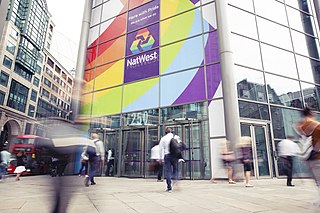Related Research Articles

Berlin is the capital and largest city of Germany, both by area and by population. Its more than 3.85 million inhabitants make it the European Union's most populous city, as measured by population within city limits. Simultaneously, the city is one of the States of Germany and is the third smallest state in the country. Berlin is surrounded by the state of Brandenburg, and Brandenburg's capital Potsdam is nearby. Berlin's urban area has a population of around 4.5 million and is therefore the most populous urban area in Germany. The Berlin-Brandenburg capital region has around 6.2 million inhabitants and is Germany's second-largest metropolitan region after the Rhine-Ruhr region, and the sixth-biggest metropolitan region by GDP in the European Union.

The Berlin Wall was a guarded concrete barrier that encircled West Berlin of the Federal Republic of Germany from 1961 to 1989, separating it from East Berlin and the German Democratic Republic. Construction of the Berlin Wall was commenced by the government of the GDR on 13 August 1961. It included guard towers placed along large concrete walls, accompanied by a wide area that contained anti-vehicle trenches, beds of nails and other defenses. The primary intention for the Wall's construction was to prevent East German citizens from fleeing to the West.

Frankfurt, officially Frankfurt am Main, is the most populous city in the German state of Hesse. Its 791,000 inhabitants as of 2022 make it the fifth-most populous city in Germany, and it is the only city in the country rated as an "alpha world city" according to GaWC. Located in the foreland of the Taunus on its namesake Main, it forms a continuous conurbation with the neighboring city of Offenbach am Main and its urban area has a population of over 2.3 million. The city is the heart of the larger Rhine-Main metropolitan region, which has a population of more than 5.8 million and is Germany's second-largest metropolitan region after the Rhine-Ruhr region and the fourth biggest metropolitan region by GDP in the European Union. Frankfurt is home to the European Central Bank, one of the institutional seats of the European Union, while Frankfurt's central business district lies about 90 km (56 mi) northwest of the geographic center of the EU at Gadheim in Lower Franconia. Like France and Franconia, the city is named after the Franks. Frankfurt is the largest city in the Rhenish Franconian dialect area.

The economy of Switzerland is one of the world's most advanced and a highly-developed free market economy. The economy of Switzerland has ranked first in the world since 2015 on the Global Innovation Index and third in the 2020 Global Competitiveness Report. According to United Nations data for 2016, Switzerland is the third richest landlocked country in the world after Liechtenstein and Luxembourg. Together with the latter and Norway, they are the only three countries in the world with a GDP per capita (nominal) above US$90,000 that are neither island nations nor ministates.

The United East India Company and commonly known as the Dutch East India Company, was a chartered trading company and the first joint-stock company in the world. Established on 20 March 1602 by the States General of the Netherlands amalgamating existing companies, it was granted a 21-year monopoly to carry out trade activities in Asia. Shares in the company could be purchased by any citizen of the United Provinces and then subsequently bought and sold in open-air secondary markets. The company possessed quasi-governmental powers, including the ability to wage war, imprison and execute convicts, negotiate treaties, strike its own coins, and establish colonies. Also, because it traded across multiple colonies and countries from both the East and the West, the VOC is sometimes considered to have been the world's first multinational corporation.

Pyridoxamine is one form of vitamin B6. Chemically it is based on a pyridine ring structure, with hydroxyl, methyl, aminomethyl, and hydroxymethyl substituents. It differs from pyridoxine by the substituent at the 4-position. The hydroxyl at position 3 and aminomethyl group at position 4 of its ring endow pyridoxamine with a variety of chemical properties, including the scavenging of free radical species and carbonyl species formed in sugar and lipid degradation and chelation of metal ions that catalyze Amadori reactions.

Interflug GmbH was the national airline of the German Democratic Republic from 1963 to 1990. Based in East Berlin, it operated scheduled and chartered flights to European and intercontinental destinations out of its hub at Berlin Schönefeld Airport, focusing on Comecon countries. Interflug also had significant crop dusting operations. Following German reunification, the company was liquidated.

The Peaceful Revolution, as a part of the Revolutions of 1989, was the process of sociopolitical change that led to the opening of East Germany's borders with the West, the end of the ruling of the Socialist Unity Party of Germany (SED) in the German Democratic Republic in 1989 and the transition to a parliamentary democracy, which later enabled the reunification of Germany in October 1990. This happened through non-violent initiatives and demonstrations. This period of change is referred to in German as Die Wende.
Bank Leumi is an Israeli bank. It was founded on February 27, 1902, in Jaffa as the Anglo Palestine Company as subsidiary of the Jewish Colonial Trust Limited formed before in London by members of the Zionist movement to promote the industry, construction, agriculture, and infrastructure of the land hoped to ultimately become Israel. Today, Bank Leumi is Israel's largest bank, with overseas offices in Luxembourg, US, Switzerland, the UK, Mexico, Uruguay, Romania, Jersey, and China.

The Western City Gate, also known as the Genex Tower is a 36-story skyscraper in Belgrade, Serbia, which was designed in 1977 by Mihajlo Mitrović in the brutalist style. It is formed by two towers connected with a two-story bridge and revolving restaurant at the top. It is 117 m (384 ft) tall. It remained the tallest building in Serbia and Belgrade for 42 years, until being surpassed by West 65 Tower in 2021. It was also the tallest building in the Balkans for 14 years, until being surpassed by Akbank Tower in Istanbul, Turkey in 1993.

Renate Schmidt is a German Social Democratic politician.
In its economic relations, Japan is both a major trading nation and one of the largest international investors in the world. In many respects, international trade is the lifeblood of Japan's economy. Imports and exports totaling the equivalent of nearly US$1.309.2 Trillion in 2017, which meant that Japan was the world's fourth largest trading nation after China, the United States and Germany. Trade was once the primary form of Japan's international economic relationships, but in the 1980s its rapidly rising foreign investments added a new and increasingly important dimension, broadening the horizons of Japanese businesses and giving Japan new world prominence.

Danish India was the name given to the colonies of Denmark in the Indian subcontinent, forming part of the Danish overseas colonies. Denmark–Norway held colonial possessions in India for more than 200 years, including the town of Tharangambadi in present-day Tamil Nadu state, Serampore in present-day West Bengal, and the Nicobar Islands, currently part of India's union territory of the Andaman and Nicobar Islands. The Danish and Norwegian presence in India was of little significance to the major European powers as they presented neither a military nor a mercantile threat. Dano-Norwegian ventures in India, as elsewhere, were typically undercapitalised and never able to dominate or monopolise trade routes in the same way that British, French, and Portuguese ventures could.

German–Iranian relations are the bilateral relations between Germany and Iran. Official diplomatic relations between Iran and Germany after World War II began in 1939, when Iran opened its first diplomatic mission office in Bonn, both countries′ predecessor states had maintained formal diplomatic relations since the end of 19th century. Germany has an embassy in Tehran, which was originally established in the court of Naser al-Din Shah Qajar in October 1884 and has been in the present building since 1894. Iran opened its embassy in Berlin in 1885. Germany and Iran continued to have political relations well into World War II. In December 2022, Germany said it was "suspending state incentives to promote trade with Iran due to the repression of demonstrators."

The Bank of Amsterdam or Wisselbank was an early bank, vouched for by the city of Amsterdam, and established in 1609. It was the first public bank to offer accounts not directly convertible to coin. As such, it has been described as the first true central bank, even though that view is not uniformly shared. The Amsterdam Wisselbank was also active in the production of coins. For decades the assay master of the Bank sent out stocks of gold and silver to the various Mints in the United Netherlands to receive new coins in return.

Vanquis Banking Group, formerly Provident Financial plc, is a British bank headquartered in Bradford, England which specialises in credit cards, loans and consumer vehicle finance. It primarily services customers with a sub-prime credit history who have been declined for credit from mainstream lenders. It also offers fixed-rate and notice savings accounts under the trading name Vanquis Savings. It is listed on the London Stock Exchange.

The State Bank of the GDR was the central bank of East Germany. It was established on 1 January 1968 from the Deutsche Notenbank and took over the majority of the same tasks.

National Westminster Bank, trading as NatWest, is a major retail and commercial bank in the United Kingdom based in London, England. It was established in 1968 by the merger of National Provincial Bank and Westminster Bank. In 2000, it became part of The Royal Bank of Scotland Group, which was re-named NatWest Group in 2020. Following ringfencing of the group's core domestic business, the bank became a direct subsidiary of NatWest Holdings; NatWest Markets comprises the non-ringfenced investment banking arm. The British government currently owns 35% of NatWest Group after spending £45 billion bailing out the lender in 2008; the proportion at one point was 54.7%. NatWest International is a trading name of RBS International, which also sits outside the ringfence.
Vancouver City Savings Credit Union, commonly referred to as Vancity, is a member-owned financial co-operative headquartered in Vancouver, British Columbia, Canada. By asset size, Vancity is the largest community credit union in Canada as of 2019, with CA$28.2 billion in assets plus assets under administration, 60 branches and more than 543,000 members.

Inner German relations, also known as the FRG-GDR relations, East Germany-West Germanyrelations or German-German relations, were the political, diplomatic, economic, cultural and personal contacts between the Federal Republic of Germany and the German Democratic Republic, at the period of the West-East division in German history from the founding of East Germany on 7 October 1949 to Germany's reunification on 3 October 1990.
References
- ↑ Gunkel, Christoph (2016-12-20). "Genex-Kataloge: Der sonderbare Versandhandel der maroden DDR". Der Spiegel (in German). ISSN 2195-1349 . Retrieved 2024-01-30.